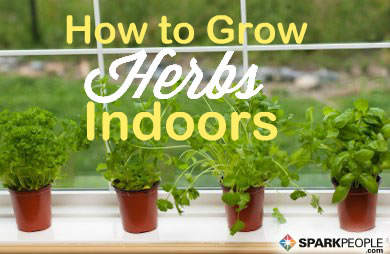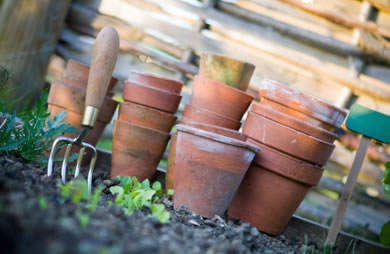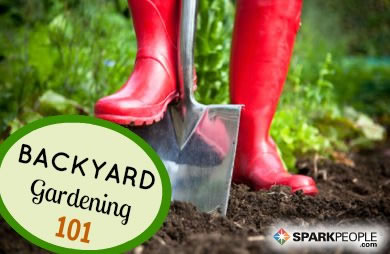5 Gardening Solutions for Urbanites
-
.jpg)
Indoor Gardening
Growing plants indoors can help purify the air, add color to your rooms, and give you the freedom to grow many things that might not be able to thrive outdoors. Herbs are a very popular choice for indoor growers. Try growing some in small pots on a sunny windowsill, especially in the kitchen, and you'll have the freshest, most fragrant herbs on hand for cooking. All indoor plants will naturally turn toward the light source as they grow, so it is important to periodically rotate the pots for balanced growth. Harvest your plants regularly so they don't outgrow their homes. Try growing chives, oregano, mint, thyme, sage, basil, and rosemary. Other non-edible plants that work well indoors include bonsai trees, orchids, violets, begonias, and peace lilies.
-

Hanging Garden
If you have a small balcony or porch with an overhang, then you have room for hanging plant baskets. First, consider the weight of the plant and the structures that are available to support it. Some plants can hang from chains indoors; others can hang on a shepherd's hook staked into the ground or hanging from a balcony. If your plant with be high off the ground, consider using an extension on your hose, such as a watering wand, to make watering easy. (This will save you the hassle of taking it down every time it needs a drink.) Use caution and consider the drainage needs of your plants. Many hanging plants don't hold moisture as well. Strawberries do well in hanging baskets--and they look great! Peppers, cucumbers and tomatoes hang well, too; look for special inverted planters for these plants. If you want to bring more greenery and less produce to your porch, try hanging petunias, impatiens, morning glories, lobelia flowers, geraniums, German ivy, or Wandering Jew.
-

Window Garden
Outdoor window boxes are an attractive option when you're short on green space. Store-purchased boxes are widely available at nurseries and home improvement stores, but if you're handy, you can build your own out of lumber, or recycle some old drawers or even lunch boxes! Make sure your window boxes have holes in the bottom (for drainage). Once you fill a window box with dirt, it can be shockingly heavy, so secure it tightly to your building with brackets from the hardware store. When in doubt, ask questions and get advice from the staff to make sure you're hanging your boxes properly. Window boxes aren't just for flowers, though you certainly can grow them there. Any reasonably short-rooted plants, including herbs, beets, lettuce, onions, spinach and radishes can thrive in window boxes. Violets, impatiens, morning glories, nasturtiums, petunias, and marigolds will add a splash of color and boost your curb appeal, too.
-
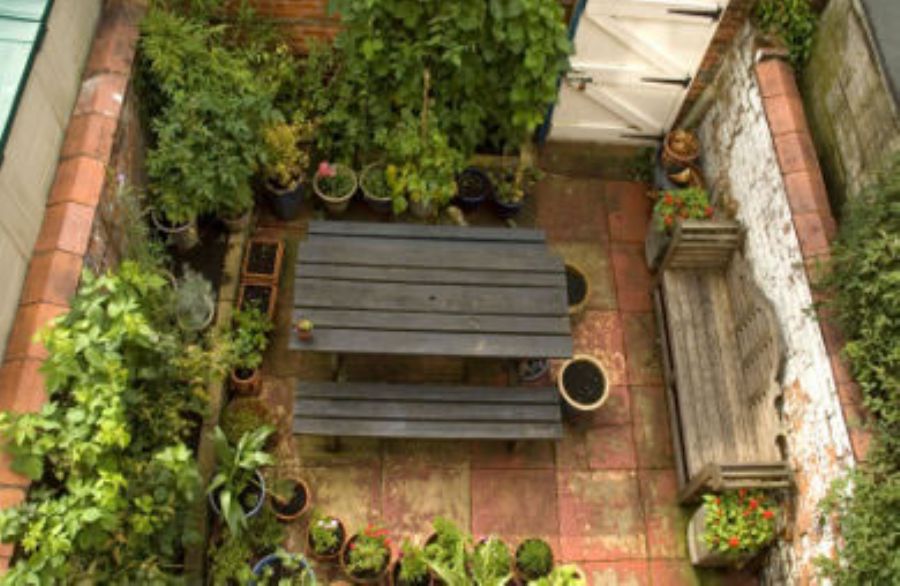
Container Garden
The best part of container gardening is that you determine where to place your garden. It can be on a rooftop, balcony, or desk, and you can switch it around as you see fit. Don't feel like you have to limit yourself to the traditional terra cotta or plastic pots, either. Any container with adequate drainage can be a home for your plants. Be creative with what you have on hand--repurpose old yogurt containers into planters, for example. If your budget allows, nurseries and home improvement stores have a bounty of containers. Think about your plant's specific needs for moisture retention, temperature and root space when selecting containers. Remember to group plants with similar needs together (yes, you can grow more than one type of plant in a single pot) for gardening efficiency. Grow cherry tomatoes, strawberries, chives, radishes, shorter varieties of carrots, herbs and green beans in containers, or enhance your space with flowers.
-
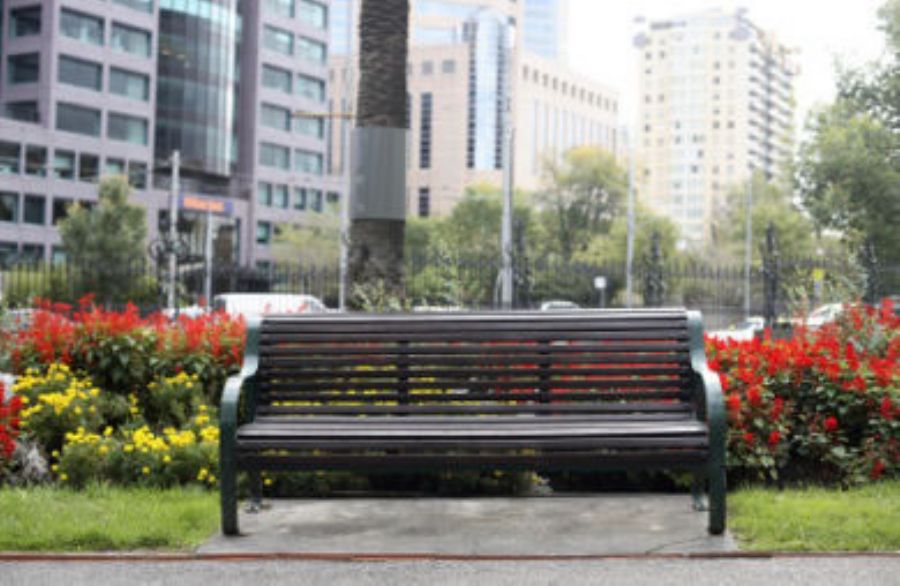
Community Garden
If you don't have enough space for the solutions above, or you simply want to expand your gardening horizons, then a community garden is for you. Beyond giving you a small plot of land on which to grow whatever edibles, plants or flowers your heart desires, community gardening also broadens your social network as you and other gardeners share a communal space and get to know one another. Most cities have land set aside where ordinary citizens may come and get their nails dirty. Joining a community garden usually involves a small fee, but it gives you a space all your own. To find a community garden near you, visit www.CommunityGarden.org.
See more nutrition slideshows
No Yard? No Problem!
Written by Jenny Sigler, SparkPeople Contributor
Don't be discouraged you see what seems like an impossible feat: gardening in an urban environment. An urban Eden can be in a pot, basket or planter box, on a balcony, deck, or windowsill. It can even take the shape of your very own plot in a communal garden near your home. If you have the desire to plant, there are plenty of ways to get there, no matter where you live! Here are five ways urban dwellers can grow fruits, veggies and herbs without setting foot in suburbia.
Start Slideshow
Indoor Gardening
Growing plants indoors can help purify the air, add color to your rooms, and give you the freedom to grow many things that might not be able to thrive outdoors. Herbs are a very popular choice for indoor growers. Try growing some in small pots on a sunny windowsill, especially in the kitchen, and you'll have the freshest, most fragrant herbs on hand for cooking. All indoor plants will naturally turn toward the light source as they grow, so it is important to periodically rotate the pots for balanced growth. Harvest your plants regularly so they don't outgrow their homes. Try growing chives, oregano, mint, thyme, sage, basil, and rosemary. Other non-edible plants that work well indoors include bonsai trees, orchids, violets, begonias, and peace lilies.
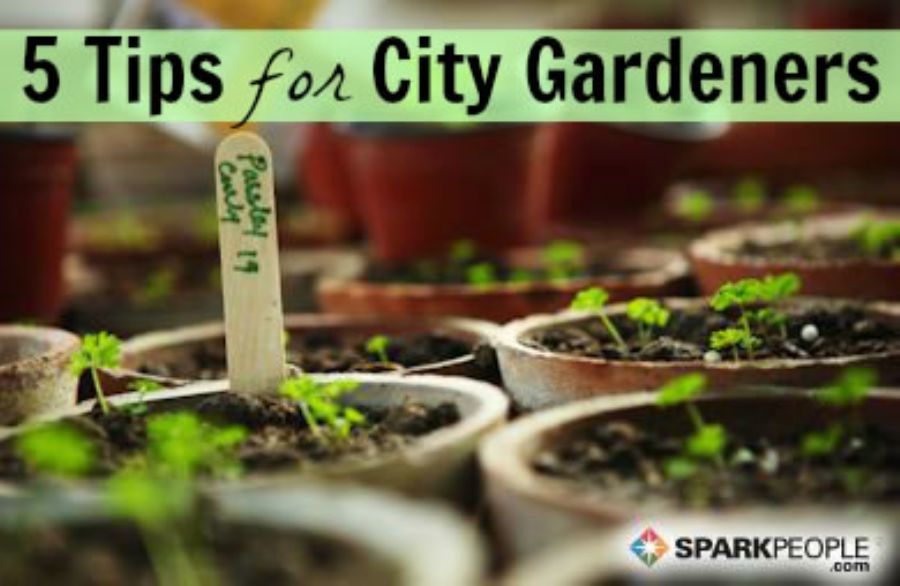
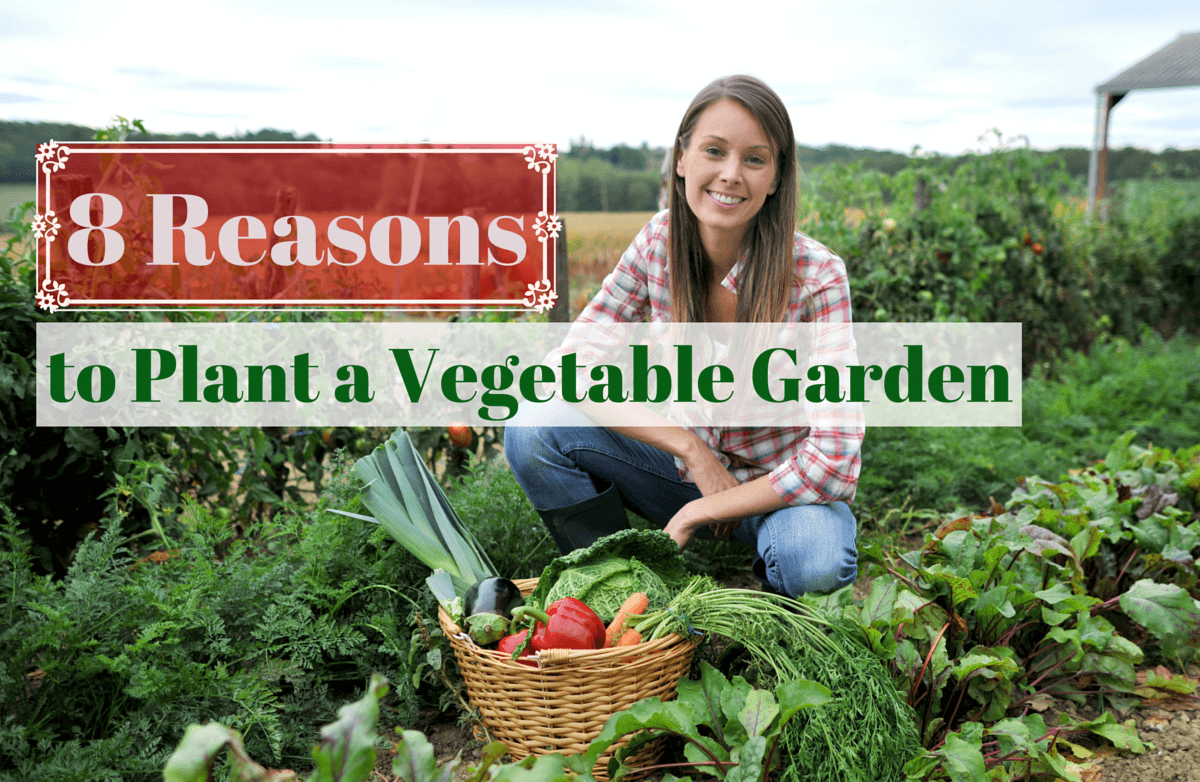
.jpg)


